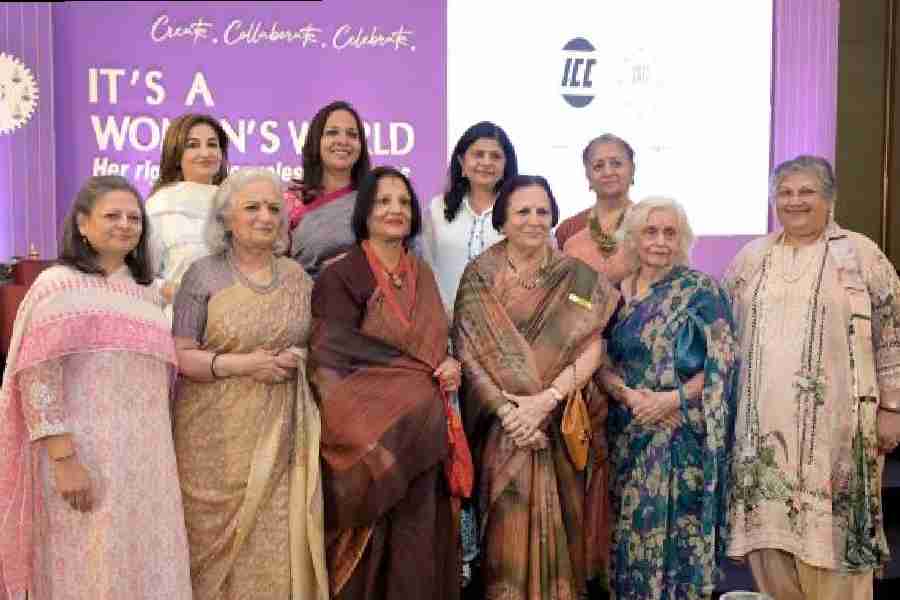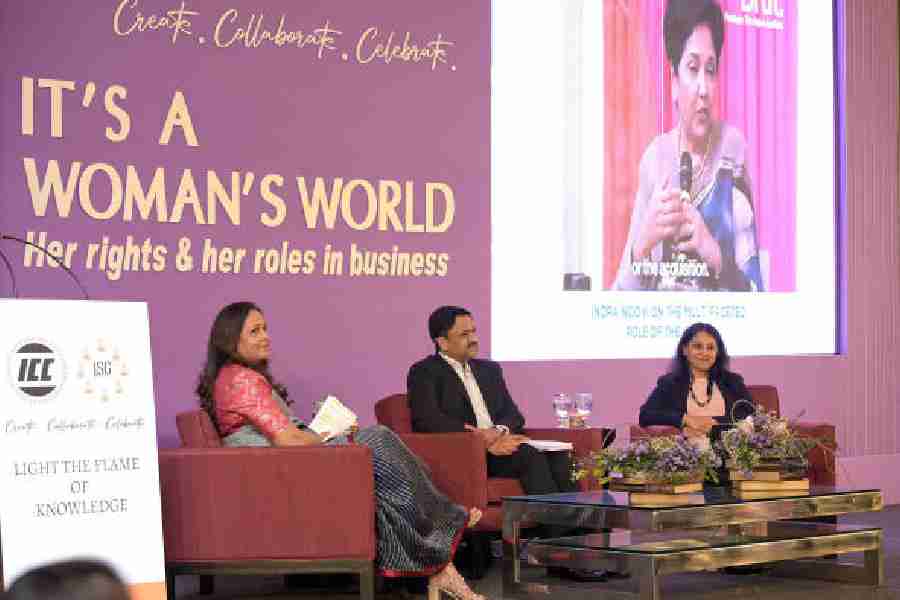The legal framework for women in business and succession is changing in a progressive and sustainable manner. It is essential for women to be aware of their rights, roles and responsibility in these spheres. Keeping this in mind, Ladies Study Group hosted a talk called ‘It’s A Woman’s World’ at ITC Sonar on July 6 with legal experts Haigreve Khaitan and Bijal Ajinkya from Khaitan & Co. The experts elaborated on the legal nuances in the rights of women and shared simple legal tips to secure their financial future. The event drew a lively crowd of 80 members and friends of the Ladies Study Group.
Bhawna Agarwal, the president of LSG, presided over the event and raised important topics of discussion and questions for the two speakers to talk about. Khaitan began by explaining succession as “an exercise to pass the baton with no finish line". "It involves group planning around assets, property, wealth, care for elders as well as the younger generation,” he said. He encouraged the ideas of a will, trust funds, or prenups for women to be in control of their future.
Traditionally, in India, the rules on succession were clearly and predominantly designed keeping the men in mind. Therefore, making a will was not a common thought for women. However, with the change in law brought by The Hindu Succession (Amendment) Act, 2005 which removed gender discriminatory provisions in the Hindu Succession Act, Khaitan pointed out that the legal involvement of women is imperative to avoid circumstances like that of the Mehras from Dil Dhadakne Do.
According to the two legal veterans, the time to start is now. There is no age or wealth limit for writing a will or planning ahead what is to be done with what you have. The three most important steps in the undertaking of succession planning, according to Khaitan, is to “know your assets, communicate and to give away enough and keep enough”. He debunked the myth his clients often tell him— 'If I make a will, I’ll die.' He said that making a will is an essential part of building a secure future for a woman and her family. He urged the audience to not shy away from recognising assets and starting the uncomfortable conversation of ownership within the family. Ajinkya further explained the nitty-gritty of the law. According to Hindu law, if an unmarried woman without children passes away without leaving a will, her assets will go to her father’s legal heirs. A Hindu married woman’s assets will likewise be distributed to her children and spouse if she passes away without making a will. If a childless widow dies without leaving a will, her assets pass to her deceased husband’s legal heirs or, if neither exists, to her parents.

LSG governing body. (First row, left to right) Anuradha Kanoria, Preeti Kapoor, Alka Jalan, Sumangala Birla, Roma Bhagat and Yashodhara Khaitan. (Second row, left to right) Minnie Juneja, Bhawna Agarwal, Preeti Goenka and Parul Swarup. Roma Bhagat, the founding member of LSG, said, “The group was founded by the idea of starting a thinking group for women in Calcutta around 50 years ago and today, it continues to do meaningful work for women.”

Richa Agarwal, a member of LSG and chairperson of Kolkata Centre for Creativity and CEO of Emami Art, said, “After hearing Haigreve Khaitan andBijal Ajinkya I am even more convinced on the importance of keeping all our paperwork in order. It’s easier to plan one’s wishes and revisit the same rather than leave everything to ambiguity.
“It served as a powerful wake up call, reminding us of the urgency to engage in these conversations and safeguard not only our rights but also those of the future generations,” said Enu Bala, executive committee member of LSG.
